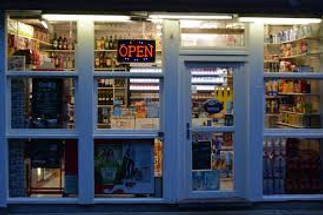Posted by Pure Potent on Jan 18th 2021
A Case for Convenience Stores
The sales of CBD products in the convenience channel received a 390% increase from 2018 to 2020. Although this was a huge win for CBD, experts believe this value is just a shadow of things to come. This increase can be attributed to the high interest in the potential therapeutic properties of CBD in pain relief, reducing anxiety, depression, and more. With this, more and more people are getting interested in the CBD since it shows a promising return on investment quickly. The numbers seem to be on the side of CBD, and with time, it will become a huge market with lots of investors.
Inasmuch as CBD is gaining more grounds with several countries considering to legalize it for medical and recreational purposes, it is pertinent to note that Marijuana is still a Schedule 1 drug that is completely illegal at the federal level, and the Food and Drug Administration is yet to approve the sale of any ingestible CBD product with health claims.
Although CBD was removed from the list of banned substances by WADA, there are still some restrictions regarding its use and sales in several world regions. The increased interest in CBD and its products makes it a promising source of revenue for convenience store operators, as long as they approach the products in the right way.
HOW CONVENIENCE STORES CAN GET THE MOST FROM THE CBD MARKET
As more convenience stores become interested in CBD products, they must understand the rules guiding their sales and distribution. All Convenience store owners must understand the CBD rules obtainable in their region and stick to them. Understanding the laws is paramount to succeeding in the CBD market. For newcomers to succeed in the market, factors such as cannabinoid spectrum (full-spectrum, broad-spectrum, and pure isolate CBD), mode of extraction, and CBD source should be taken into due consideration.
To avoid the law's hammer, CBD formulators must avoid making direct health claims to their products. This is because most of CBD’s therapeutic potentials are yet to be endorsed by the FDA and other governing bodies.
To actively participate as major stakeholders in the growing CBD market, retailers must consider several other factors like insurance certificates (from the CBD Company), certificate of analysis, third party testing, company financials, and zero health claims. These are documents that hold important information concerning the product they are about to put up for sale in their C-stores. Please note that all CBD products must contain less than 0.3% THC (the psychoactive compound in the cannabis plant).
Conclusion
As more convenience stores get interested in selling CBD products, there is a need to keep them adequately informed about the latest happenings in the industry and how to identify the best products for their customers. Please note that most therapeutic potentials of CBD are still under research and are yet to be endorsed by the FDA; hence, making direct health claims to the products is illegal. Let us know if you have any questions regarding CBD products. We will love to hear from you soon.

